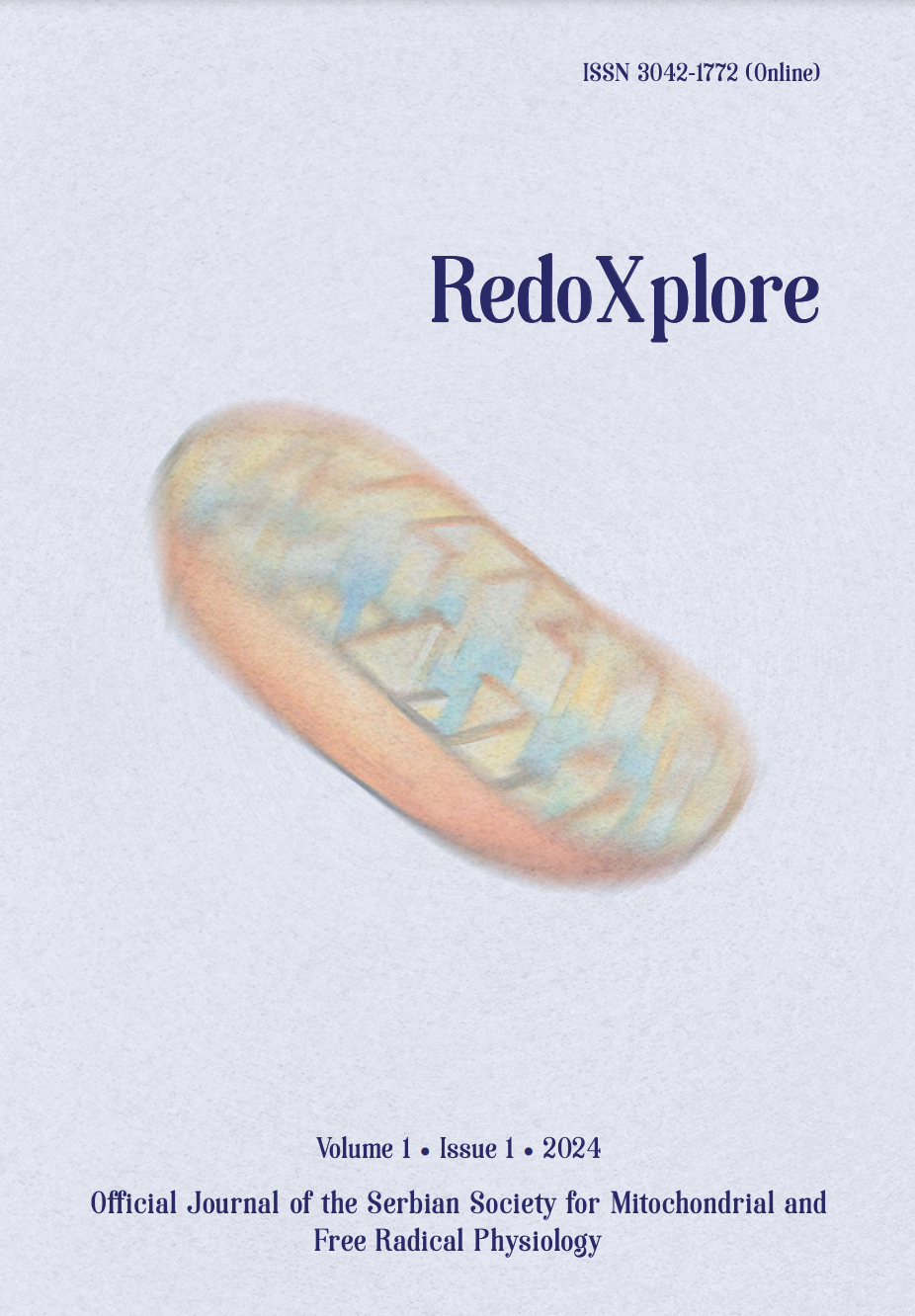Current issue

Volume 1, Issue 1, 2024
Online ISSN: 3042-1772
Volume 1 , Issue 1, (2024)
Published: 29.08.2024.
Open Access
All issues
Contents
29.08.2024.
Professional paper
THE ROLE OF NRF2-DEPENDENT METABOLIC REPROGRAMMING OF BROWN ADIPOSE TISSUE IN ORTHOTOPIC BREAST CANCER MODEL
Breast cancer is characterized by specific metabolic changes that support tumorigenesis, highlighting the emerging appreciation of cancer as a metabolic disease. These metabolic changes are simultaneous with redox reprogramming with nuclear factor erythroid 2-related factor 2 (Nrf2) representing their master integrator. Given that interscapular brown adipose tissue (IBAT) influences whole-body metabolism, our goal was to investigate the redox-metabolic crosstalk between the tumor and the host at the systemic level by exploring Nrf2-driven metabolic changes that occur in IBAT in the orthotopic model of breast cancer in wild-type (WT) and mice lacking functional Nrf2 (Nrf2KO). We analyzed the protein expression of key enzymes involved in glucose and lipid metabolism in control groups and at different points during tumor growth (10 mg, 50 mg, 100 mg, 200 mg, and 400 mg). In both WT and Nrf2KO mice, the results indicated a transient induction of hexokinase 2 expression during the early phase of tumor growth (<100 mg). Accordingly, pyruvate dehydrogenase expression followed the same profile. In Nrf2KO mice, a general decline in glyceraldehyde 3-phosphate dehydrogenase, phosphofructokinase-1, and glucose-6-phosphate dehydrogenase expression was detected during the late phase of tumor growth (>100 mg). Since no changes in WT mice occurred, these findings are considered Nrf2-dependent. Concomitantly, a decrease in protein expression of fatty acid synthase and acetyl-CoA carboxylase in Nrf2KO mice was observed. These observations correspond to decreased levels of 5'-AMP-activated protein kinase and hypoxia-inducible factor 1 during the late-phase (>100 mg) of tumor growth in Nrf2KO mice which suggests their involvement in transcriptional regulation. Our results revealed that IBAT metabolism responds to tumor growth and underscored that this communication is Nrf2-dependent giving implications for further understanding of breast cancer in the light of systemic metabolic disease.
This research was supported by the Science Fund of the Republic of Serbia, #7750238, Exploring new avenues in breast cancer research: Redox and metabolic reprogramming of cancer and associated adipose tissue - REFRAME.
Maja Vukobratovic, Strahinja Djuric, Jelena Jevtic, Tamara Zakic, Aleksandra Korac, Aleksandra Jankovic, Bato Korac





